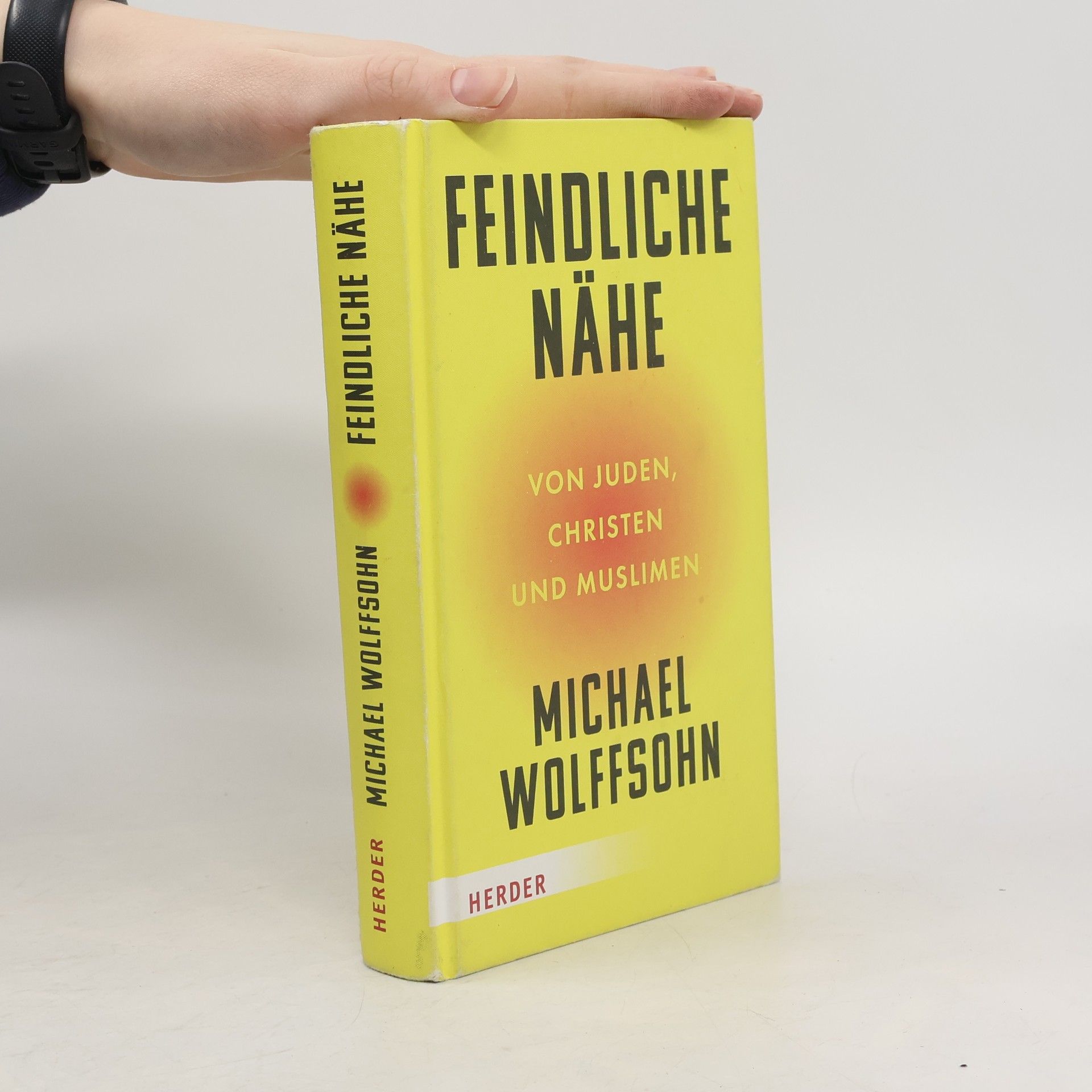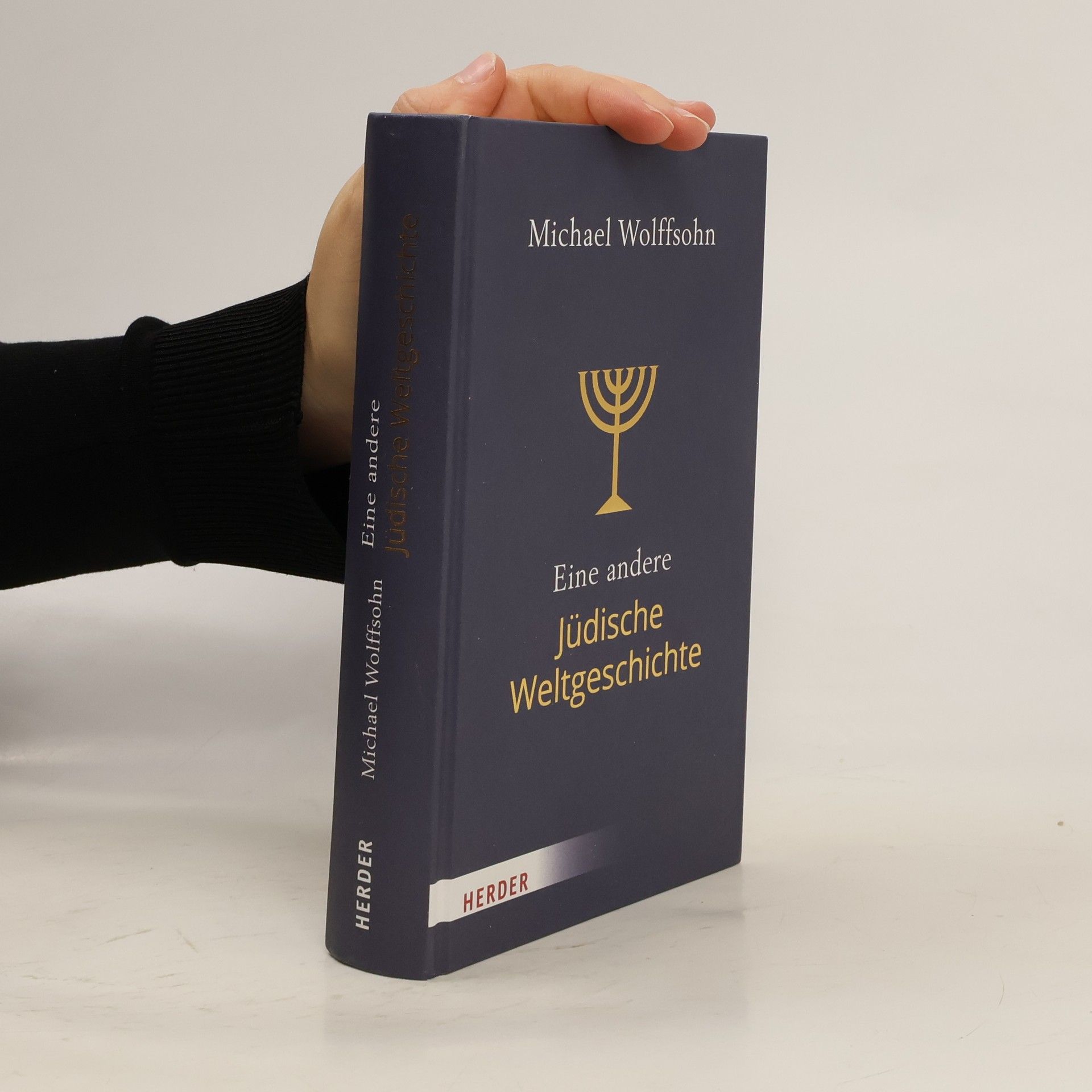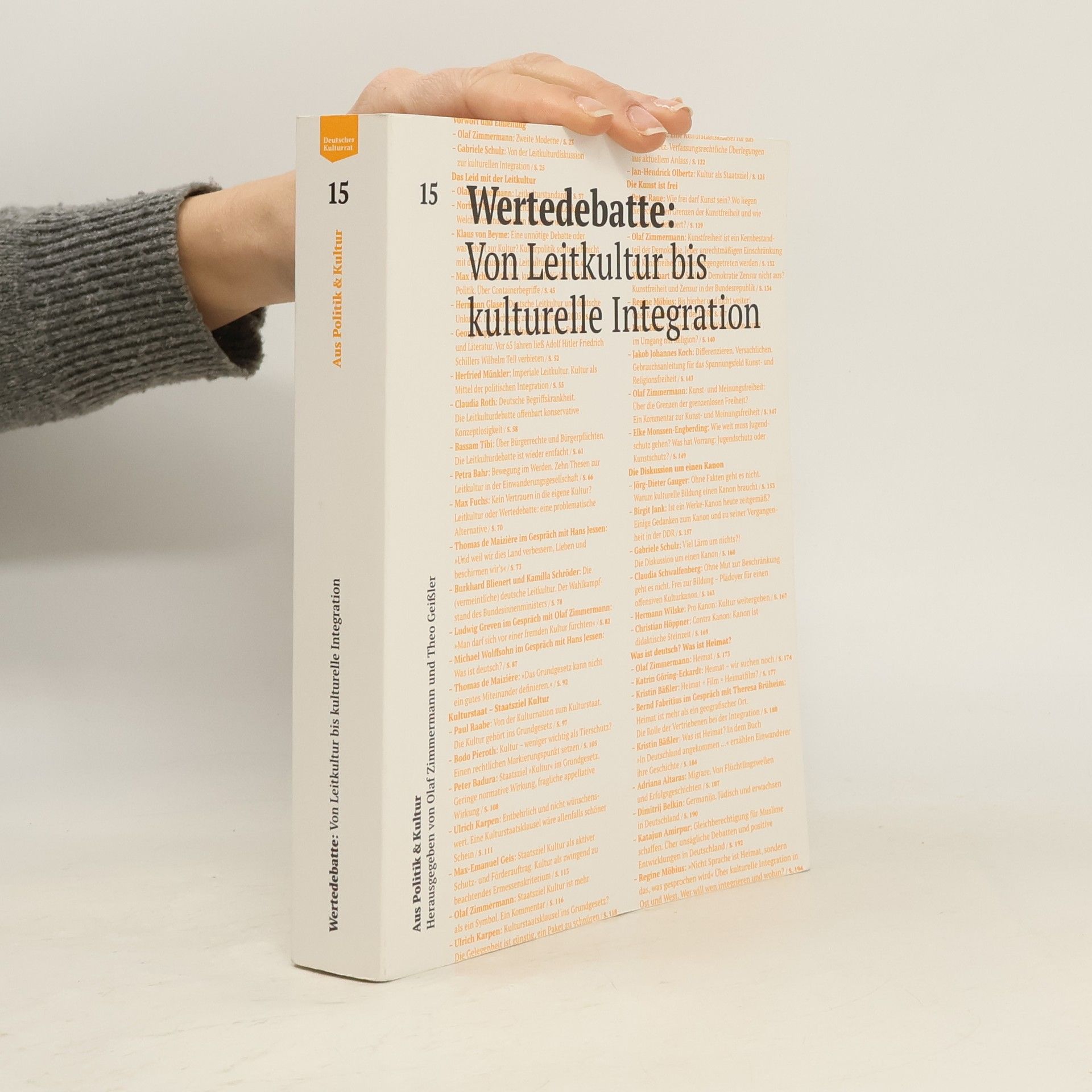Michael Wolffsohn setzt sich, ausgehend von der aktuellen Politik, in seinem neuen Buch mit dem Verhältnis von Judentum, Christentum und Islam – gestern, heute und morgen – auseinander. In gewohnt pointierter Weise zieht er dazu Geschichte und Theologie heran. Seine illusionslosen und dennoch teils humorvollen und immer messerscharfen Analysen gelten insbesondere Terror, Krieg und Gewalt. Seine große mediale Präsenz als Talkshowgast, Interviewpartner und Publizist erklärt sich durch seine Fähigkeit zu faktengesättigten und allgemeinverständlichen Statements, die auch dieses Buch prägen. Vor dem Hintergrund eines wachsenden Antisemitismus in Europa, einer Zunahme des islamistischen Terrors und des eskalierenden Krieges zwischen Israel und seinen Nachbarn sind Michael Wolffsohns grundsätzliche Einordnungen und Erklärungen zum besseren Verständnis unabdingbar.
Michael Wolffsohn Book order (chronological)

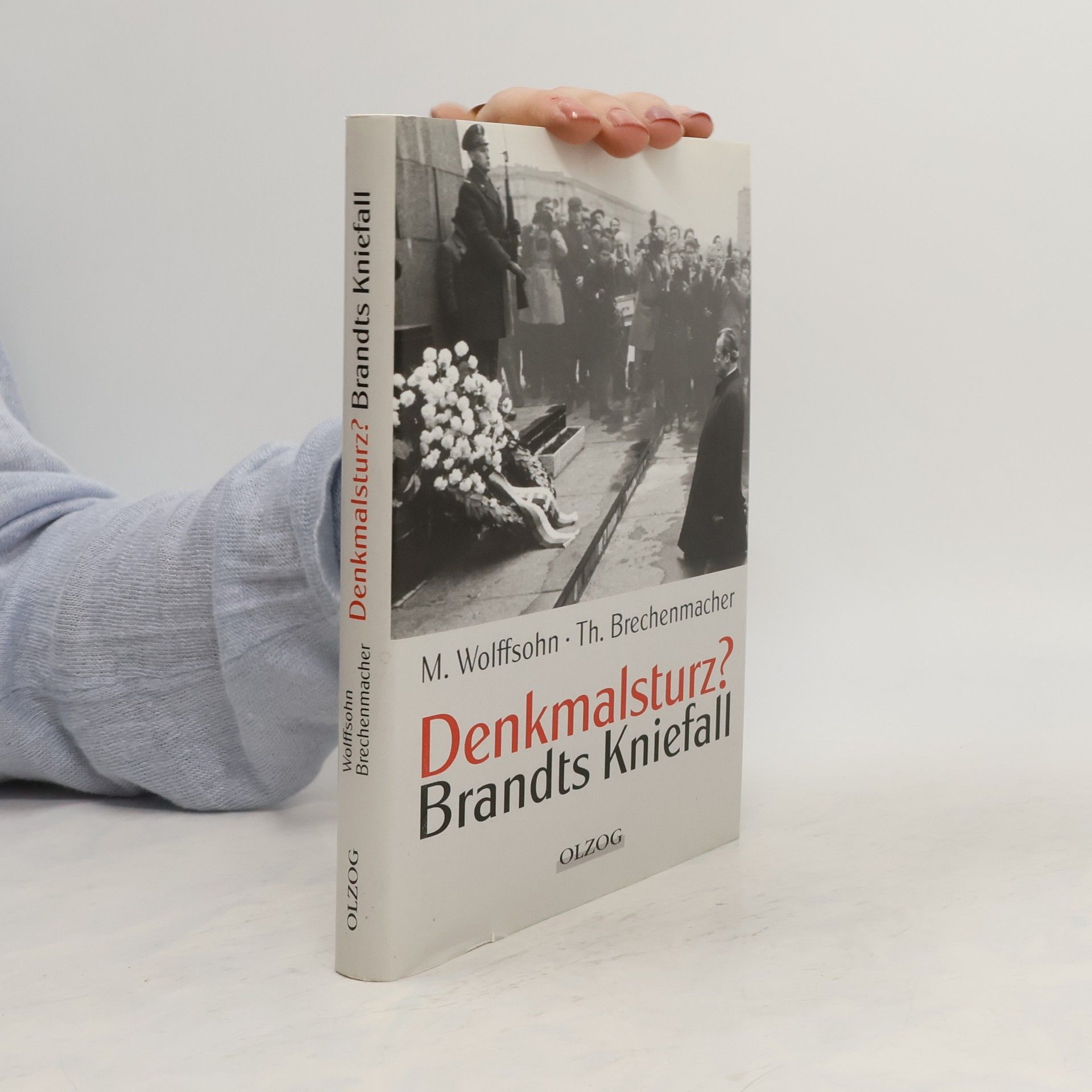


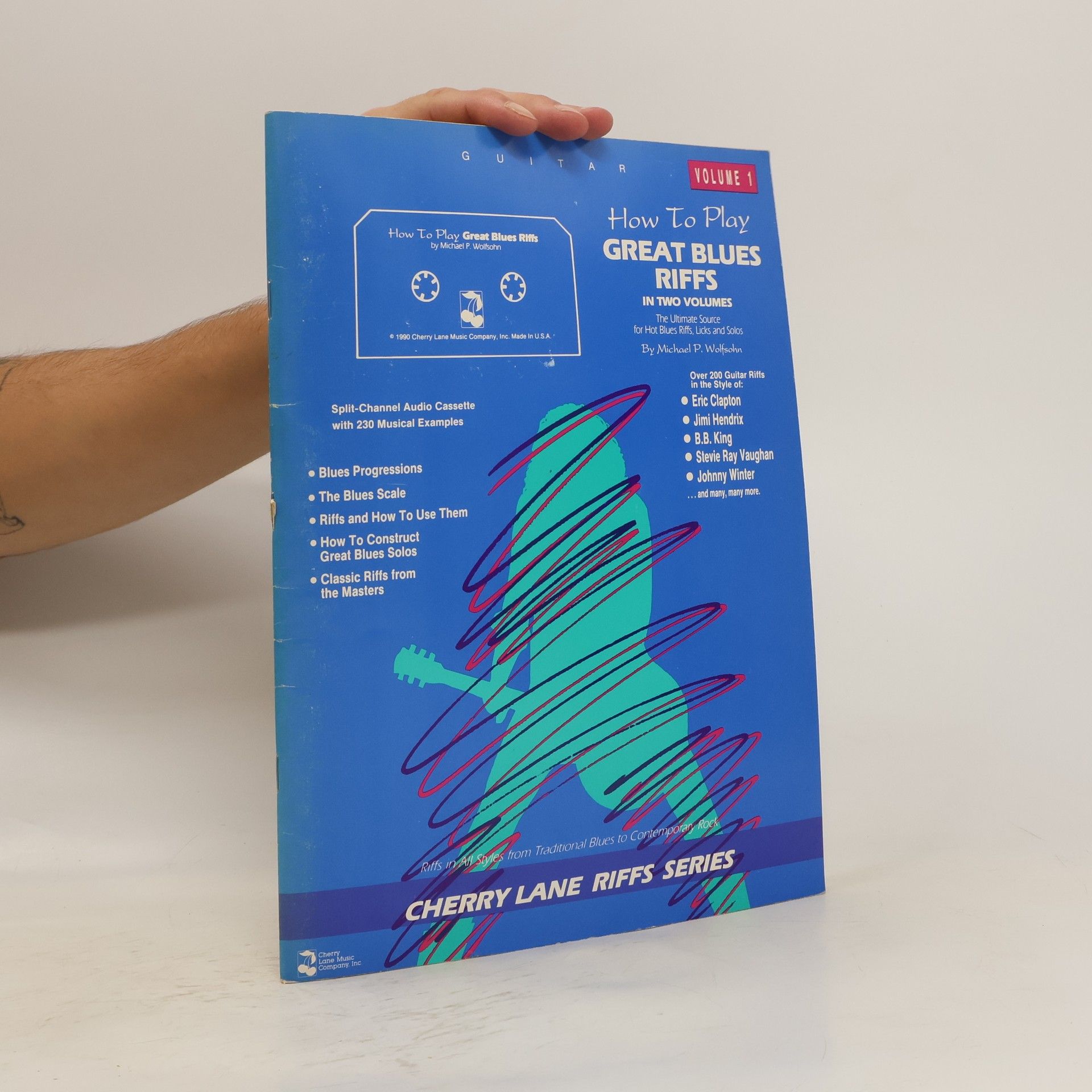

Hallo, ich bin Jude!
Eine aktuelle Textsammlung zu kontroversen jüdisch-israelischen Themen
- 160 pages
- 6 hours of reading
Im Chor der scheinbar Aufgeklärten heißt es »Nie wieder!«. Um die abstoßende Wirklichkeit wegzureden, verkünden politische Verantwortungsträger inbrünstig: »Antisemitismus hat in Deutschland keinen Platz!«. Doch statt »Nie wieder!« erleben wir ein »Schon wieder!«. Und zunehmend ist der Antisemitismus nicht nur rechtsextrem. Heute , so Michael Wolffsohn, hat er Geschwister: bei Linksextremisten, deren linksliberalen Unterstützern sowie vor allem bei muslimischen Antisemiten. Die Reaktionen auf die Mordorgie der Hamas am 7. Oktober 2023 hat Michael Wolffsohn in mehreren sehr persönlichen Texten verarbeitet. Darunter auch in seiner aufsehenerregenden Rede vor dem Berliner Abgeordnetenhaus zum 85. Jahrestag des 9. November 1938. Diese Rede hat Wolffsohn zwei Mal geschrieben. Einmal vor und einmal nach dem 7. Oktober 2023. Beide sehr unterschiedliche Fassungen enthält dieses Buch. Sie machen deutlich, wie stark der Bruch ist, den das Massaker der Hamas bedeutet. Dieses Buch ist eine scharfe Abrechnung des großen Historikers und Publizisten und ein leidenschaftlicher Aufruf, nicht billige Empörung zu inszenieren, sondern politische und gesellschaftliche Konsequenzen aus dem alten und neuen Antisemitismus zu ziehen.
Wir waren Glückskinder - trotz allem
- 240 pages
- 9 hours of reading
Einmal Tel Aviv und zurück: die Geschichte einer Emigration Thea Saalheimer war siebzehn, als sie Anfang 1939 vor dem Naziterror nach Tel Aviv floh, wo sie sich in Max Wolffsohn verliebte. Fünfzehn Jahre später kehrten die beiden mit ihrem damals siebenjährigen Sohn Michael nach Deutschland zurück. Wie erlebten Thea und ihre Familie den Nationalsozialismus und die Emigration – in ein Land, das ihnen in jeder Hinsicht fremd war? Wieso zogen sie ins Land der Täter zurück? Die Geschichte seiner Mutter und die seiner Kindheit erzählt der Historiker und Nahostexperte Michael Wolffsohn unterhaltsam, voll erzählerischer Kraft und mit vielen Fakten über den Nationalsozialismus und die Geschichte der Juden.
Eine andere Jüdische Weltgeschichte
- 364 pages
- 13 hours of reading
"Michael Wolffsohn, der Meister der deutsch-jüdischen Geschichtsschreibung, erzählt die Historie der Juden von den Anfängen bis heute. Präzise, vielschichtig und spannend berichtet er von einem Volk und einer Religion, die Weltgeschichte und Weltkultur prägen. Er beleuchtet die Theologie ebenso wie die Geografie jüdischer Geschichte. Er stellt zentrale Persönlichkeiten vor und schreibt über jüdische Kultur und Wirtschaft sowie jüdisches Sozialleben - auch in der islamischen Welt. So entsteht eine Universalgeschichte des Judentums aus der Feder eines großen Kenners und Erzählers, die Schulweisheiten entkräftet und antisemitische Ideologien durch Fakten entlarvt." --
This book explains the historical roots of the conflict between Jews and Arabs, which has lost none of its explosiveness to the present day, in a comprehensive and easy-to-understand manner. The question of who owns the Holy Land is more relevant today than ever. The debates on this topic are often characterized by ignorance and strong emotions, while partiality and power interests still obscure the view on the political situation in the Middle East. Shaking up old myths and prejudices, this book presents an overall historical as well as political analysis of the Jewish, Christian, and Muslim structures, actors, and actions from the very beginning to this very day, as well as a topical analysis. It combines history with theology and political science. Thus, the book is a must-read for scholars and students of political science, history, and international relations, as well as policy-makers, interested in a better understanding of the historical background and current political situation in the Middle East.
Wir waren Glückskinder - trotz allem. Eine deutsch-jüdische Familiengeschichte
- 224 pages
- 8 hours of reading
"Einmal Tel Aviv und zurück: die Geschichte einer Emigration. Thea Saalheimer war 17, als sie Anfang 1939 vor dem Naziterror nach Tel Aviv floh, wo sie sich in Max Wolffsohn verliebte. 15 Jahre später kehrten die beiden mit ihrem damals siebenjährigen Sohn, dem heutigen Historiker und Nahostexperten Michael Wolffsohn, nach Deutschland zurück. Wie erlebten Thea und ihre Familie den Nationalsozialismus und die Emigration - in ein Land, das ihnen in jeder Hinsicht fremd war? Wieso zogen sie ins Land der Täter zurück? Die Geschichte seiner Mutter und die seiner Kindheit erzählt Michael Wolffsohn in dieser Jugendbuchversion seiner ›Deutschjüdischen Glückskinder‹ unterhaltsam, voller erzählerischer Kraft und mit vielen Fakten über den Nationalsozialismus und die Geschichte der Juden" -- Publisher's website
Wolffsohn, Im Kampf um die Fakten in Geschichte und Politik. Gebundene Ausgabe.
Aus Politik & Kultur - 15: Wertedebatte
Von Leitkultur bis kulturelle Integration
- 548 pages
- 20 hours of reading
Die Debatte um die Werte, die unsere Gesellschaft zusammenhalten und auf die sich die Mehrheit der in Deutschland Lebenden beziehen, gleicht einer Fieberkurve. Mal geht die Temperatur hoch, hitzig, fieberhaft wird diskutiert, gestritten, polemisiert, was erlaubt ist, was in Deutschland üblich ist, wer was tun muss, um dazugehören, wie unsere Leitkultur auszusehen hat. Dann wieder sinkt die Temperatur der Debatte etwas. Es finden mehr sachliche Diskussionen statt, die sich durch ernsthaftes Nachdenken und eine kritische Reflexion auszeichnen. Die Wertedebatte gehört ohne Zweifel zu den wichtigsten Diskussionen der letzten Jahre. Die sogenannte Flüchtlingskrise hat diese Debatte noch einmal angeheizt, aber sie ist schon deutlich älter. In diesem Buch sind Beiträge aus Politik & Kultur, der Zeitung des Deutschen Kulturrates aus über zehn Jahren zusammengefasst, die viele Facetten der Fieberkurve zeigen. Es geht um die Themen Leitkultur, Werte und Tugenden, den Kulturstaat und das Staatsziel Kultur, die Kunstfreiheit, die Diskussion um einen Kanon, um die Fragen Was ist deutsch? Was ist Heimat?, um Deutschland vom Auswanderungs zum Einwanderungsland, um kulturelle Integration und Erwerbsarbeit, um kulturelle Integration als Thema der Medien und der Zivilgesellschaft, um kulturelle Integration als Aufgabe für Kultureinrichtungen und der kulturellen Bildung und die besondere Rolle der Religion in der Integrationsdebatte.
